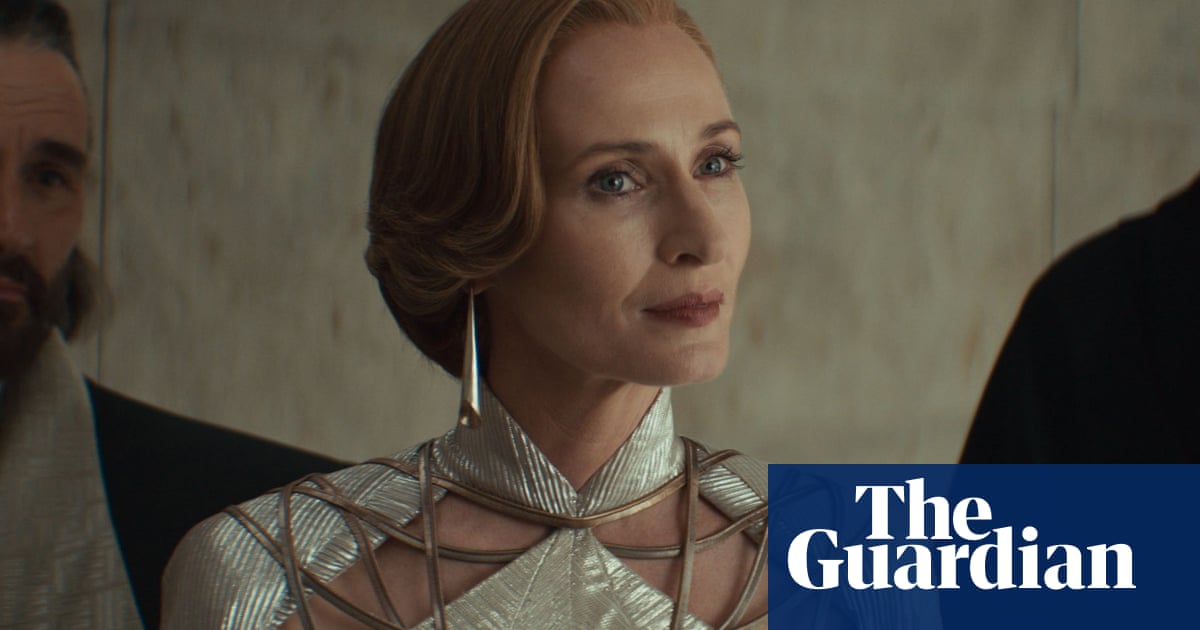Since it started in 2022, theStar Warsspin-off Andor has proved an unexpectedly bolshie addition to the Disney-owned mega-franchise. By portraying worker uprisings, surveillance states, sexual violence and prison industrial complexes, showrunner Tony Gilroy added fresh political nuance and human stakes to George Lucas’s endless galactic civil war.
And since its April premiere,the show’s second and final season has only doubled down.In the first episode, viewers saw smarmy spin doctors from the Empire’s “Ministry of Enlightenment” discuss how to “weaponise” galactic opinion to manufacture public approval for ethnic cleansing on the planet Ghorman. News anchors parrot Imperial talking points, while the military plots a long game: to provoke an uprising from “rebels you can depend on to do the wrong thing” to justify a mass crackdown – all in service of a long-planned land and resources grab.
This week, the Ghorman arc came to a head with a mass protest from its beret-clad residents (after countless desert planets, forest planets, and ice planets, it seems Star Wars finally has a France). This ended in a bloody, stage-managed massacre that has long been hinted at in Star Wars’ vast canon.
But it was a speech in episode nine, delivered by senator and clandestine rebel organiser Mon Mothma, that was surprisingly radical and timely, warning that the “loss of an objective reality is perhaps the most dangerous” thing of all.
“The death of truth is the ultimate victory of evil,” she declared. “When truth leaves us, when we let it slip away, when it is ripped from our hands, we become vulnerable to the appetite of whichever monster screams the loudest.
“What happened yesterday on Ghorman was unprovoked genocide – yes, genocide,” she adds, to jeers. “And that truth has been exiled from this chamber.”
From its post-truth themes to the contentious debate over the definition of “genocide”, the speech’s parallels to current events – from Trump’s America to Gaza – have been noted by many viewers. According to Genevieve O’Reilly, who plays Mon Mothma, however, the scenes were filmed long before 7 October 2023 or the 2024 US election.
“I think I did that speech maybe in May [2023] … so way before Trump was elected,” O’Reilly toldthe Guardian. “I think there was other stuff that was going on in the world at the time, but I remember knowing that it was important.”
Gilroy had initially only written sections of the monologue, which were to be spliced into a bigger montage. “He came and sat in my trailer, and he said, ‘So what do you think? And I said, ‘I really love it’,” O’Reilly recalls. “And then I was a little bit quiet, and I thought, ‘How am I going to say this?’ And he went, ‘You want me to write the whole speech, don’t you?’”
Gilroy subsequently penned the entire monologue. When O’Reilly delivered the speech, it prompted an ovation on set.
“I remember being really nervous, I remember knowing how important this was to the character and to me … and how important it will be within the piece,” she said, of filming the first take – a closeup surrounded by green screen and crew.
“And I remember them getting all those hundreds of people just to be completely quiet, and I remember shaking, and I remember them all clapping afterwards. And thatneverhappens.”
The revolutionary politics of a global entertainment juggernaut perhaps shouldn’t be overstated –Varietyhas reported that Disney execs allegedly pressured Rachel Zegler, star of its underperforming Snow White remake, to delete her pro-Palestine and anti-Trump tweets – but O’Reilly says her speech simply reflects the show’s grasp of human nature and history.
“I think Empire is a huge part of our human history, across continents, across ages,” O’Reilly says. “Empire has been part of us – it’s kind of the ugly side of our human ambition, I think.”
Gilroy – reportedly “wearily” –told the Hollywood Reporter on Tuesday:“I’m not psychic.”
“The really sorry truth” of Andor’s prescience, he added, “is that peace and prosperity and calm are the rarities. Those are rarities throughout the last 6,000 years of recorded history. You could drop this show at any point in the last 6,000 years, and it would make sense to some people about what’s happening to them.”
With now only three more episodes to go, Andor presses on to its ultimate conclusion: setting up the opening crawl of A New Hope, a film released in 1977. Given that its ending was written half a century ago,with one eye towards America’s involvement in the Vietnam War, it is a bold, if somewhat disturbing feat that Andor – so-called“Star Wars for grownups”– still feels as if it was ripped from today’s headlines.
The final three episodes of Andor air on Disney+ on 13 May
